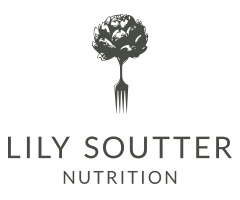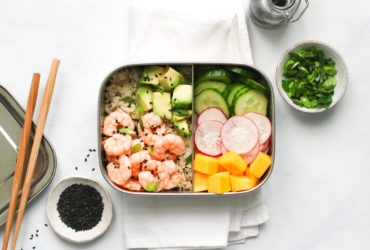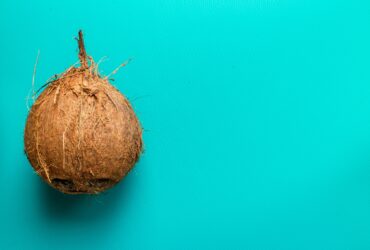Want to boost your energy for a more productive workday? Here are 10 simple strategies to eat, energise and elevate…
1. Get off the blood sugar roller coaster
Did you know that consuming just two 300ml sugary drinks each day would end up as a huge 22 kilograms of sugar in one year? Whilst it may be tempting to rely on high sugar options to improve alertness, many options can result in blood sugar highs and lows. Low blood sugar can lead to energy slumps, lack of concentration, irritability and may stimulate further cravings for sugary ‘quick fix’ foods.
Instead opt for snacks, which keeps blood sugar stable and provides sustained energy. By combining protein, fibre and a little healthy fat with your carbohydrate source, you can slow the rate at which sugar is released into the bloodstream.
For example:
- Wholegrain toast (carbohydrate + fibre) and poached egg (fat + protein) = slow-release energy
- White toast (carbohydrate) and jam (carbohydrate) = fast release energy
2. Opt for whole grains and fibre-rich carbohydrates
Our brain runs on sugar to function and uses as much as 20% of all energy required by the body. All carbohydrates break down to sugar, however, the slow release and fibre-rich carbohydrates provide us with more sustained fuel all day long. Opt for wholegrain carbohydrates such as brown rice, brown bread, brown pasta as well as chickpeas, lentils, beans, quinoa, oats, beans, lentils, chickpeas and leave the skin on your potato.
3. Protein – little and often
Protein has satiating properties and is required for the growth and maintenance of muscle mass, both of which play a role in maintaining a healthy body weight. Whilst we don’t all need a high protein diet, we should aim to spread consumption throughout the day by incorporating it at each meal.
Try lean meat, fish, low-fat dairy products, eggs, tofu, tempeh, beans, lentils, chickpeas, nuts and seeds.
4. Avoid the food coma at lunch
Sometimes afternoon drowsiness can simply be down to eating too much at lunchtime. If you struggle with that post-lunch slump, opt for a balanced lunch and be mindful of the portions size especially when it comes to carbohydrate and fat. Remember to follow the food plate guide for optimal energy. You may also like to enjoy a nourishing afternoon snack.
5. Set yourself up for success by having a healthy option to hand for that 3pm sugar fix!
If you have the right food to hand, then you’re more likely to make healthier choices when those sugar cravings hit. Whilst many of us have sugar cravings, consuming neat sugar straight off the spoon seems rather unappetising. Instead, we often crave a combination of sugar and fat, which provides those moreish and hyper-palatable qualities. Take chocolate, cakes and biscuits, for example, they are often made up of sugar and fat.
Instead of your usual 3pm sugar fix, you could consider choosing a nourishing sweet snack such as fresh fruit with a small amount of healthy fats – for example, try an apple (sugar) dipped in a little nut butter (healthy fat), or a banana (sugar) with unsweetened FAGE Total yoghurt (fat).
6. Don’t forget to hydrate
Dehydration can result in low energy, headaches, poor mood and lack of concentration (1). Research has also shown that even mild dehydration (1-2% loss of body weight), can reduce short-term memory and impact cognition test scores.
If you want to feel and perform at your best then staying hydrated can really set you up for success! The average adult requires 1.5-2 litres of fluid per day, however checking the colour of your urine is a great way to monitor your hydration status so you can personalise your fluid needs. Our urine should be a pale straw colour or clear. If it is dark yellow or orange we need to drink more. *Some supplements can change the colour of your urine
7. Befriend matcha green tea
Matcha green tea contains a special substance called L-Theanine, which has been shown to stimulate feelings of relaxed alertness and clarity. This is a great way to give you a brain boost without the jitters that come with excess caffeine. *matcha does come with a little caffeine
It may be tempting to rely on caffeine for energy, however, overconsumption of this stimulant can disrupt sleep and will further interfere with our natural body clock. Instead try calming herbal teas such as lemon balm and chamomile, or even valerian root for sleep. *Always seek guidance from your health care provider before taking herbs such as valerian root, lemon balm and chamomile
8. Energy nutrients
Low levels of certain nutrients can leave us feeling tired, lacking in energy and more susceptible to infections. If you’re concerned, a simple blood test with your GP can give insight into your status of the nutrients below:
Iron – red meat, fish, eggs, beans, lentils, spinach, cabbage, broccoli, tofu, nuts, seeds, dried apricots, fried dates, dried dates
Vitamin B12 – meat, fish, eggs, some fortified breakfast cereals, yeast extracts, and fortified yoghurt & milk
Vitamin D – during winter, countries in the Northern Hemisphere may be at risk of deficiencies, due to the lack of sunlight and the fact that food is not the most reliable source of vitamin D. The current UK guidelines are to consider supplementing with 10 mcg per day between Oct-April. Each country has its own national guideline for vitamin D requirements, therefore if living outside of the UK, seek guidance from your healthcare provider before supplementing.
9. Stay active, reduce stress
If you’re feeling sluggish throughout the day, then movement can help to jolt us out of our lethargic state. Exercise has been proven to reduce stress, boost energy and even mood. Break up your day with a quick power walk around the block or even try a walking meeting!
10. Get plenty of SLEEP!
It’s a no brainer that good quality sleep will aid with optimal energy and productivity throughout the day. Late-night eating, heavy meals, caffeine and alcohol are all components, which will reduce the quality of our sleep. Engage with good sleep hygiene and minimise screens (blue light) before bed.
References:
1. Adan A (2012) Cognitive performance and dehydration. J Am Coll Nutr; 31 (2):71-78.
2. Lindseth PD, Lindseth GN, Petros TV et al (2013) Effects of hydration on cognitive function of pilots. J Mil Med; 178(7):792-8.
About Lily
Lily is a London Nutritionist who graduated from Newcastle University with a BSc (Hons) degree in Food and Human Nutrition (AfN accredited) where she was awarded the Sage Faculty for Excellence Scholarship on an annual basis. She has also graduated from Surrey Unversity with an MSc in Nutritional Medicine (AfN accredited) where she was awarded a distinction. She has also completed a postgraduate Diploma in Nutritional Therapy. Lily’s extensive knowledge of the science of food and health, enables her to regularly write for The Times, The Telegraph, The Daily Mail, The Independent, Women’s Health and Cosmopolitan.
Her frequent TV appearances include ITV’s This Morning with Holly Willoughby and Phillip Schofield, and ITV’s prime time series Save Money: Lose Weight with Dr Ranj Singh. Lily’s passion is to simplify the science around nutrition, to provide health hacks and smarter eating strategies to empower people to enjoy a healthy and successful lifestyle. Her specialities lie in workplace wellness, implementing nutrition focused wellbeing programmes within corporate organisations across the UK.



